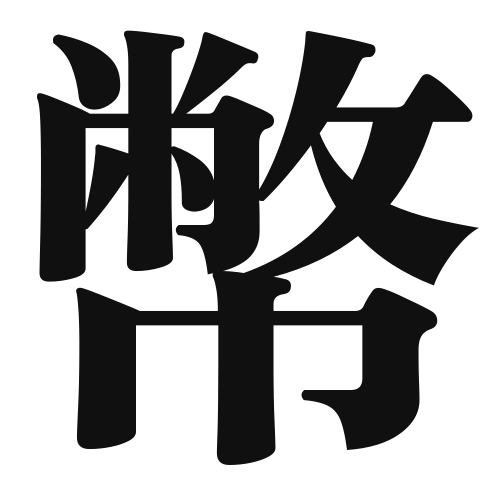1. Overview of Meaning
The kanji “幣” (pronounced “hei” or “nami”) primarily means “currency” or “money.” It can also refer to offerings or sacrificial items in a religious context, symbolizing respect and gratitude.
2. Formation and Radical
The kanji “幣” is a compound character that combines elements to convey its meaning. It consists of the radical “幺” (which often relates to smallness or thinness) and the character “币,” which is associated with currency. The character can be classified as a phonetic compound (形声文字), where one part suggests the meaning and the other indicates the pronunciation.
The radical for “幣” is “幺,” which is often found in characters related to small or delicate things.
3. Examples of Usage
Common words and phrases that include “幣” are:
- 通貨幣 (つうかへい, “currency”)
- 神社の幣 (じんじゃのへい, “sacred offerings at a shrine”)
Example sentences in daily conversation:
- 「この国の通貨幣は円です。」 (This country’s currency is the yen.)
- 「神社で幣を捧げました。」 (I offered a sacred item at the shrine.)
4. Synonyms and Antonyms
Similar kanji with related meanings include:
- 貨 (か, “goods” or “merchandise”) – refers more to physical items rather than the concept of currency.
- 金 (きん, “gold” or “money”) – often used to refer to wealth or precious metals.
Antonyms include:
- 貧 (ひん, “poverty”) – representing the opposite of wealth or currency.
5. Cultural and Historical Background
The kanji “幣” has significant ties to Japanese culture, particularly in Shinto practices where offerings are made to deities. It reflects the importance of respect and gratitude in Japanese traditions.
Proverbs and idiomatic expressions that include “幣” often emphasize the value of offerings and respect, such as:
- 「幣を捧げることで心を表す。」 (By offering a sacred item, one expresses their heart.)
